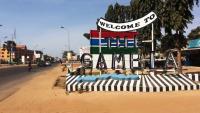The UK Foreign and Commonwealth Office (FCO) has now officially declared that “most visits to The Gambia are troubled-free”.
As opposed to previous travel warnings regarding safety and security of travelling to The Gambia, several European countries now consider visits to the country as “trouble free”.
Presently, both tourists and other visitors from UK and other European countries are encouraged to discover Banjul.
The approval is as a result of the country’s successful presidential and parliamentary elections which brought Adama Barrow and his coalition to power with a promise to “govern in accordance with the rule of law and democratic values”.
However, the UK FCO highlighted certain precautions, citing that there are a number of checkpoints operating in and around the capital and that visitors should expect their vehicle to be searched if stopped by security forces.
European countries regard UK as more proximate to The Gambia not only due to the bond shared between the two countries but also the UK was Gambia’s former colonial master.
The Point has also gathered through several recommendations that The Gambia’s profile is monitored from the UK by not only other European countries but also by its allies as an endorsement”.
Nonetheless, the FCO further cautioned that even though most visits to The Gambia are trouble-free, “independent travellers are at increased risk due to the lack of local support in an emergency”.
The FCO also advised that travellers should make sure that their next of kin in the UK have details of their itinerary and keep in regular touch.
During the reign of Yahya Jammeh, the UN Human Rights Council Special Rapporteur on extrajudicial, summary or arbitrary executions observed that The Gambia is “characterised by disregard for the rule of law, infringements of civil liberties and the existence of a repressive state apparatus”.
It also revealed that activities of civil society organisations were “closely monitored by the executive” and there were “many manifestations of fear and frustration in civil society, with reports of rampant state-led violence, persecution of the media and critical voices, and impunity for human rights violations”.
As a result, in those days, European visitors were warned to be wary and cautious, leading to many suspending or cancelling their travel and investment proposal despite persistent and relentless efforts to woo them.
UN officials had also observed that human rights defenders, journalists and political opponents were systematically targeted by security agencies and are subjected to arbitrary arrest, detention, torture, enforced disappearance and extrajudicial execution, particularly at the hands of the National Intelligence Agency.
With the new recommendations, a European travel agencies operating in The Gambia confirmed to this correspondent that “everything is now up and running as we expect a large number of people to The Gambia during the winter months and this time around it, is not only tourists but also well known business travellers.
Source: Alhagie Mbye, The Point’s Europe Correspondent


Ein paar Anmerkungen zum Tourismus
Tourismus ist einer der wichtigsten Wirtschaftsfaktoren in Gambia - neben der Landwirtschauft und den "Rücküberweisungen" von Migrant_innen. Durch die Ereignisse der letzten Jahre, ist der Tourismus-Sektor allerdings schwer angeschlagen. Der Ebola Ausbruch in Westafrika Ende 2014 hatte Auswirkungen auf die gesamte Region, und somita auch auf jene Länder, in denen es zu keinen Ebola-Erkrankungen kam, wie Gambia. Die Tourismussaison 2014/2015 war dadurch ein tiefer Einschnitt, insbesondere für jene Menschen, die im Tourismus-Sektor arbeiten.
Der Regimewechsel nach den Wahlen im Dezember 2016 und den durch Ex-Diktator Jammeh ausgerufenen Ausnahmezustand im Jänner 2017 führte dazu, dass im Jänner 1000e Tourist_innen "evakuiert" wurden - und die Saison ein jehes und frühes Ende nahm. Getroffen hat dies wieder vor allem jene Menschen, die vom Tourismus leben.
Ein weiteres Problem des Tourismus ist ebenfalls, dass viele Tourist_innen ihren Aufenthalt sehr abgeschottet in den diversen Hotelanlagen verbringen und nur wenig Kontakt zur lokalen Bevölkerung haben. Dies wird u.a. dadurch geffördert, dass es der lokalen Bevölkerung in den Zentren der Tourismusindustrie während der Saion nur am frühen Morgen und abends gestattet ist, den Strand zu besuchen. Ob sich dies unter der neuen - demokratischen - Regierung unter Präsident Adama Barrow ändern wird, ist abzuwarten.
Bleibt abschließend noch anzumerken, dass Tourismus in vielen ehemalige Kolonien sehr wichtig für das Überleben vieler Meschen ist, die sonst kaum Möglichkeiten einen Job zu haben. Um so wichtiger erscheint es, dass die Touris nicht nur ihren Urlaub in den teuren Hotelanlagen buchen, sondern sich aus diesen raus trauen und versuchen, mit der lokalen Bevölkerung in Kontakt zu treten. Denn die großen Hotels werden meist von ausländischen Investor_innen betrieben. Und, das sollte nicht vergessen werden, die Leute die dort arbeiten, werden sehr schlecht bezahlt.
Das offizielle Gambia schreibt sich zwar auf die Fahnen, einen "verantwortungsvollen Tourismus" zu praktizieren, die Realität sieht jedoch teilweise sehr anders aus. Richtlinien für"Ethical & Responsible Tourism in Gambia" gibt's und die können auf der Wesite des Gambia Tourism Board (GTB) nachgelesen werden: http://www.accessgambia.com.
Ein Beispiel, wie Armut durch Tourismus gemildert werden kann, beschreibt ein Artikel zu Uganda bei TOURISM WATCH, dem Informationsdienst Tourismus und Entwicklung, siehe: https://www.tourism-watch.de